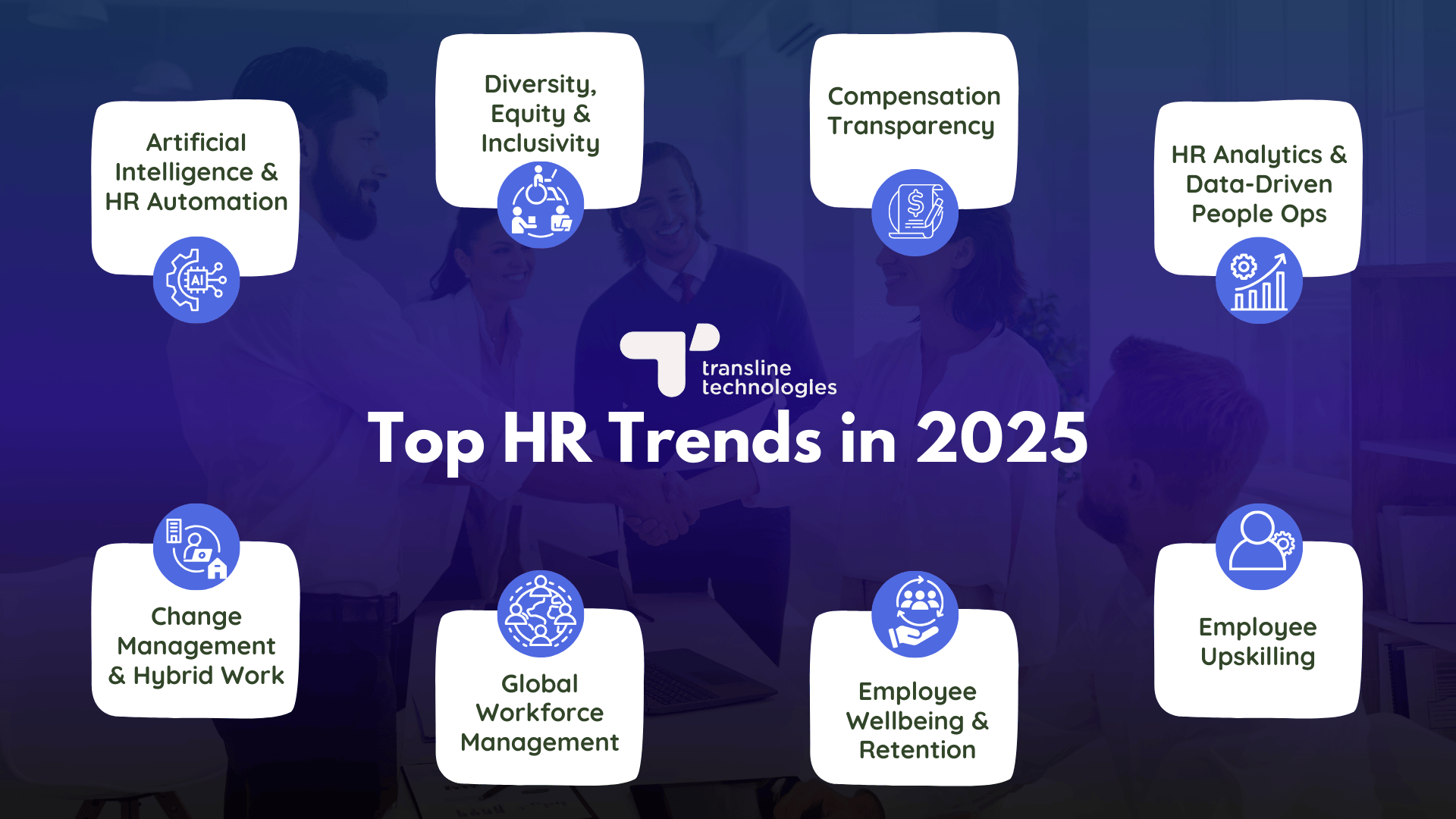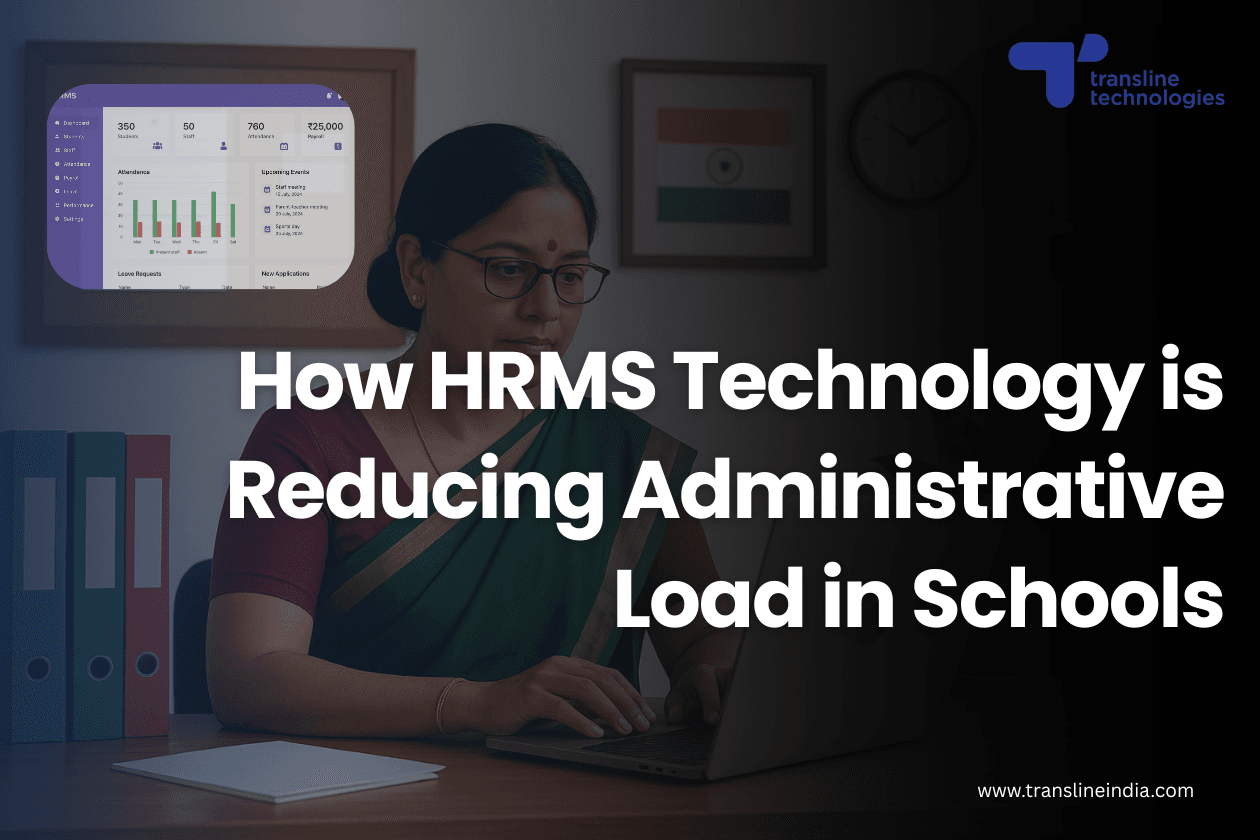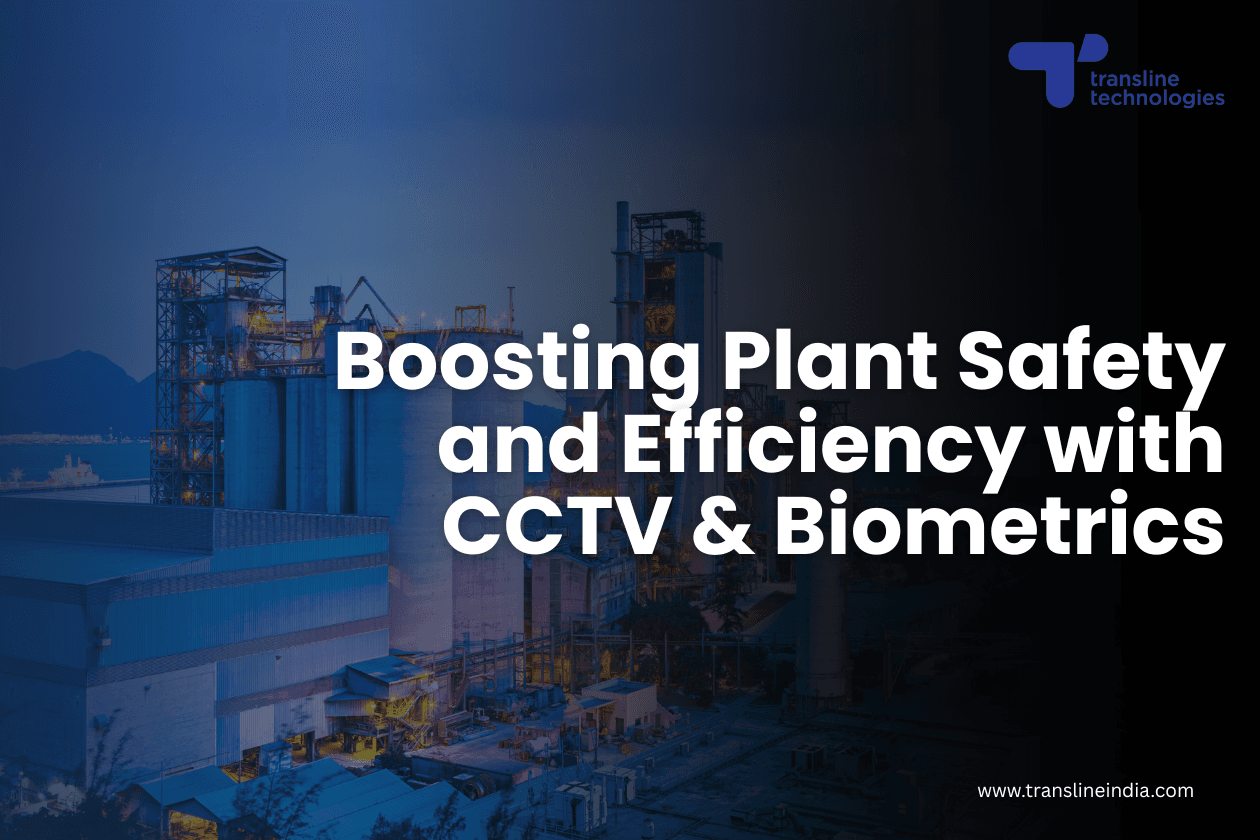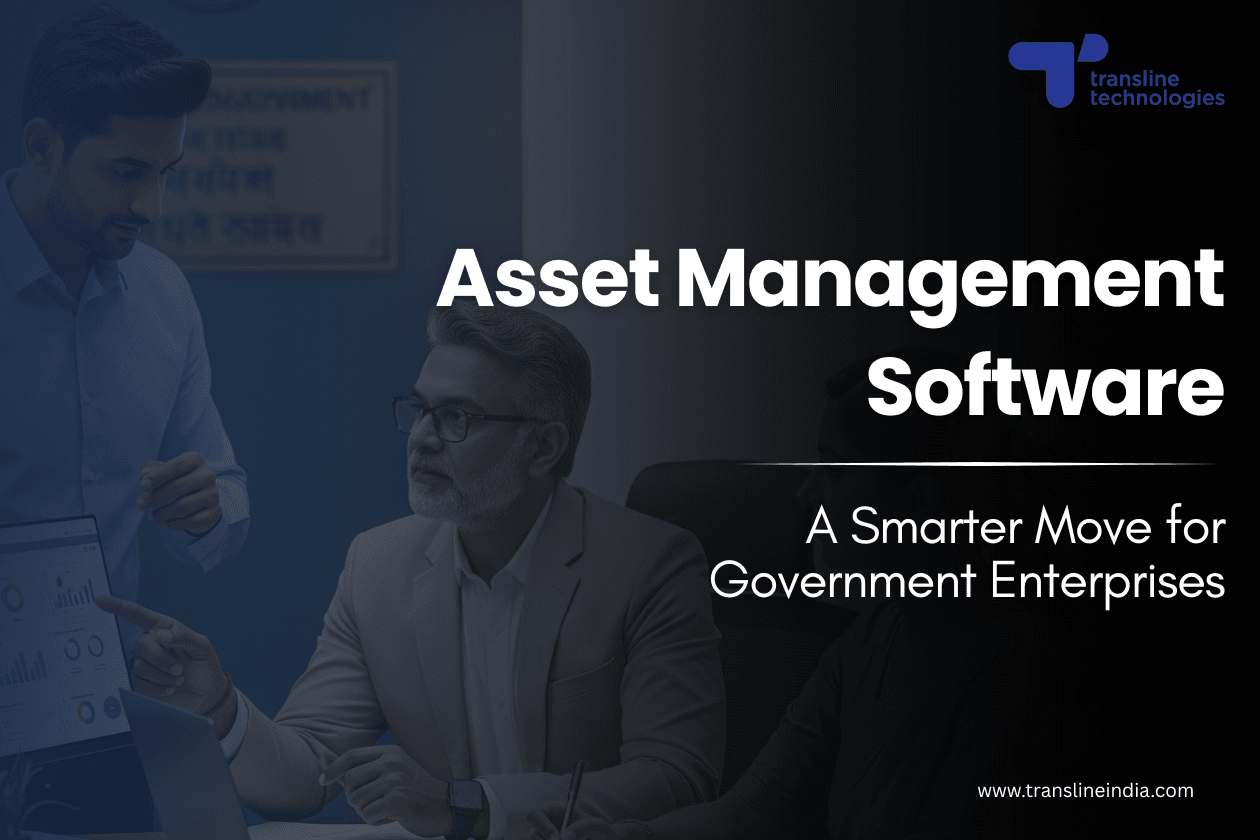
The Human Resources space has been globally evolving, and HR professionals are faced with a plethora of emerging challenges and opportunities. With technology advancing rapidly, employee expectations changing, and a diverse, global workforce, staying ahead of HR trends is more crucial than ever. This blog explores the key HR trends for 2025 that every HR professional should be aware of to drive organisational success and adapt to the evolving work environment.
The Evolving HR Landscape
In 2025, the role of HR is being redefined as companies seek ways to meet the demands of a rapidly changing workforce. Traditionally, HR focused on basic workforce management tasks like hiring and payroll, but today, HR departments are becoming strategic business units, and acting as essential partners in shaping company culture and driving business performance. Diversity, equity, and inclusion (DEI) remain central to this transformation, as organisations aim to create more inclusive workplaces. Additionally, the widespread adoption of remote and hybrid work has led HR to rethink traditional office structures and employee engagement tactics. To stay competitive, HR must leverage emerging technologies such as AI, data analytics, and cloud-based platforms to optimise operations and enhance employee experience.
Top Human Resources Trends in 2025
The HR field is continuously evolving, with several key trends emerging for 2025. Firstly, AI-powered recruitment tools will become increasingly essential in improving hiring processes by automating tasks like resume screening and candidate matching. Remote and hybrid work models will continue to thrive as organisations recognise the importance of flexibility in attracting and retaining talent. Moreover, employee well-being will take center stage, with companies focusing on mental health, work-life balance, and wellness initiatives. Additionally, the use of data analytics in HR will empower organisations to make better-informed decisions, whether it is about talent management, employee retention, or organisational development. These trends will define the future of HR as organisations prioritise innovation, agility, and employee-centric approaches.
AI and HR Automation
Artificial Intelligence and automation are revolutionising HR operations by taking over repetitive tasks that once required manual intervention. AI is getting deeply integrated into recruitment, where it not only helps with resume screening but also predicts candidate success based on data-driven insights. Moreover, HR tools are enabling automation of administrative tasks such as payroll, benefits enrollment, and compliance management, reducing the administrative burden on HR teams. AI-driven chatbots are also becoming more common for handling employee inquiries, allowing HR professionals to focus on higher-value tasks like talent development and strategic decision-making. With automation handling the heavy lifting, HR professionals can devote more time to fostering a positive organisational culture and driving business growth.
Diversity, Inclusion and Global Workforce Management
As the workforce becomes more global and diverse, HR professionals must create SMART goals that foster an inclusive work environment. Diversity, equity, and inclusion (DEI) efforts are a top priority for many companies in 2025, and HR plays a central role in driving these initiatives. Beyond recruitment, DEI strategies must permeate all aspects of the employee lifecycle, from promotions to leadership development. In addition to DEI, managing a global workforce requires HR departments to adopt tools that can handle the complexities of different time zones, languages, and legal requirements. By promoting an inclusive culture and providing resources for a diverse workforce to thrive, organisations not only improve employee morale but also enhance productivity and innovation.
HR Analytics and Data-Driven People Ops
HR departments are increasingly relying on data analytics to drive people operations in 2025. By leveraging advanced HR analytics tools, organisations can measure key metrics such as employee engagement, productivity, and turnover, enabling HR teams to make more informed decisions. Predictive analytics is becoming an essential tool for identifying potential talent gaps, forecasting workforce needs, and optimising staffing decisions. Data also plays a critical role in employee retention by helping HR understand what drives employee satisfaction and what factors contribute to turnover. By using data to personalise employee experiences and improve organisational processes, HR professionals can enhance performance and create a more effective workplace.
Change Management and Hybrid Work
With hybrid work models becoming the norm, managing organisational change effectively is crucial for HR in 2025. The shift to hybrid and remote work presents challenges such as maintaining team cohesion, ensuring productivity, and keeping employees engaged. HR professionals must implement effective change management strategies that support employees during transitions and help them navigate new work environments. This includes providing managers with the tools and training needed to lead remote teams effectively and fostering a culture of trust and communication. By embracing hybrid work and managing change proactively, HR can ensure that employees remain productive, satisfied, and aligned with the company’s values and objectives.

Employee Upskilling
As technology continues to evolve, employee upskilling has become essential for organisations that want to remain competitive. In 2025, HR departments will focus heavily on providing ongoing learning and development opportunities for employees to ensure they stay ahead of the curve. Upskilling isn’t just about technical skills — soft skills such as leadership, problem-solving, and communication are equally important. Organisations are increasingly using AI-driven learning platforms to deliver personalised training and development opportunities, helping employees acquire the skills they need for both current roles and future growth. By prioritising upskilling, HR teams can improve employee engagement, reduce turnover, and contribute to a more agile, future-ready workforce.
Pay Transparency, Employee Wellbeing and Retention
In recent times, Pay Transparency is becoming an important factor for the global talent workforce while choosing their preferred employer. HR teams are now more open about compensation structures, promoting transparency to build trust and reduce the risk of pay inequality. Along with pay transparency, employee wellbeing is taking center stage, with organisations offering programs that support both physical and mental health. Companies that prioritise employee wellbeing see higher levels of engagement and retention, as employees are more likely to stay with an organisation that cares about their overall happiness and health. By aligning compensation tactics with transparent practices and focusing on employee wellbeing, HR can foster a loyal, productive workforce.
Harnessing HRMS to Keep Pace with the Latest HR Trends
As organisations continue to adopt new HR practices, an integrated Human Resource Management System (HRMS) is becoming indispensable. A modern HRMS helps HR professionals stay ahead of the curve by offering automation and streamlining core HR functions such as recruitment, onboarding, and performance management. With cloud-based HRMS solutions, HR teams gain the flexibility and scalability needed to adapt quickly to changing business needs. More importantly, HRMS tools that incorporate AI and machine learning offer valuable insights into employee behavior, helping HR professionals make proactive decisions that improve workplace productivity and employee retention. By using these tools, HR teams can optimise their processes and align HR initiatives with overall business goals, ensuring a more efficient and employee-focused workplace.
Choosing the Right Future-Ready HRMS Solution
Selecting the right HRMS software for your organisation is crucial to embracing the latest HR trends and ensuring long-term success in the rapidly changing business landscape. When evaluating HRMS options, customisation is key — the HRMS tool should be able to meet your organisation’s unique workforce management needs and elevate employee experience. The user experience of the HRMS tool matters a lot – a user-friendly interface ensures both HR teams and employees can easily navigate the system. Security authentication is another essential consideration, as the protection of sensitive employee data is crucial in a digital-first world. To stay competitive, look for HRMS software that offer AI-driven capabilities and advanced HR analytics to enhance recruitment, performance management, and engagement.
IDONE, the new-age HRMS solution by Transline Technologies, empowers HR professionals to leverage the latest HR trends and ensure employee wellbeing. IDONE allows for seamless integration with a myriad of biometric attendance management systems, such as Facial Recognition, Fingerprint Scan, QR Based Attendance, Out-station Attendance, IRIS Recognition, Palm Vein Recognition etc. IDONE also integrates other crucial business functions such as payroll and finance, and is highly scalable.
Connect with Us today to explore how you can streamline your People Ops workflows with IDONE, while maintaining data consistency and data integrity throughout.



